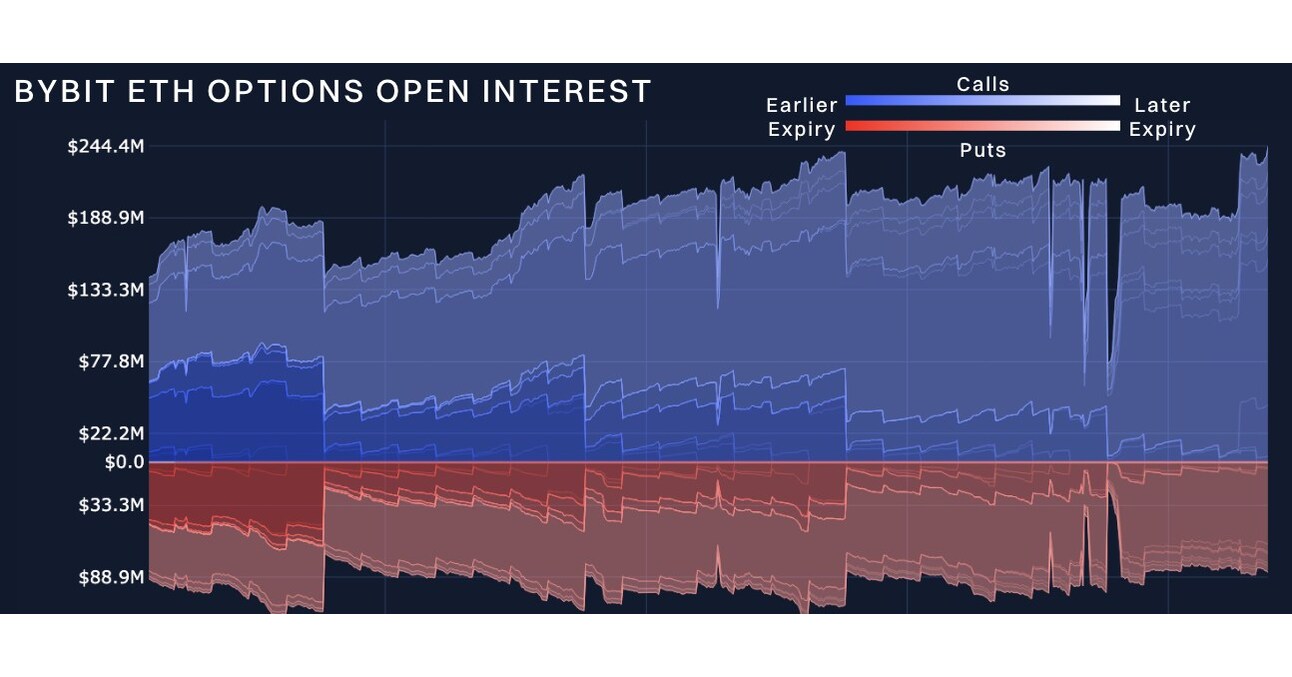Crypto
Bankman-Fried’s trial exposed crypto fraud but Congress has not been eager to regulate the industry

PALM SPRINGS, Calif. — The conviction of former cryptocurrency mogul Sam Bankman-Fried for stealing at least $10 billion from customers and investors is the latest black mark for the cryptocurrency industry, but in Washington, there seems to be little to no interest in pushing through regulation.
When cryptocurrencies collapsed and a number of companies failed last year, Congress considered multiple approaches for how to regulate the industry in the future. However, most of those efforts have gone nowhere, especially in this chaotic year that has been dominated by geopolitical tensions, inflation and the upcoming 2024 election.
Ironically, the failure of Bankman-Fried’s FTX and his subsequent arrest late last year may have contributed to the momentum for regulation stalling out. Before FTX imploded, Bankman-Fried spent millions of dollars — illegally taken from his customers it turns out — to influence the discussion around cryptocurrency regulation in Washington and push for action.
Without Congress, federal regulators like the Securities and Exchange Commission have stepped in to take their own enforcement actions against the industry, including the filing of lawsuits against Coinbase and Binance, two of the biggest crypto exchanges.
And most recently PayPal received a subpoena from the SEC related to its PayPal USD stablecoin, the company said in a filing with securities regulators Wednesday. “The subpoena requests the production of documents,” the company said. “We are cooperating with the SEC in connection with this request.”
Still, Congress still has yet to act.
Sens. Debbie Stabenow, D-Mich., and John Boozman, R-Ark., proposed last year to hand over the regulatory authority over cryptocurrencies bitcoin and ether to the Commodities Futures Trading Commission. Stabenow and Boozman lead the Senate Agriculture Committee, which has authority over the CTFC.
One big stumbling block in the Senate has been Sen. Sherrod Brown, D-Ohio, chair of the Senate Banking Committee.
Brown has been highly skeptical of cryptocurrencies as a concept and he’s been generally reluctant to put Congress’ blessing on them through regulation. He’s held several committee hearings over cryptocurrency issues, ranging from the negative impact on consumers to use of the currencies in funding illicit activities, but has not advanced any legislation out of his committee.
“Americans continue to lose money every day in crypto scams and frauds,” Brown said in a statement after Bankman-Fried was convicted. “We need to crack down on abuses and can’t let the crypto industry write its own rulebook.”
In the House, a bill that would put regulatory guardrails around stablecoins — cryptocurrencies that are supposed to be backed by hard assets like the U.S. dollar — passed out of the House Financial Services Committee this summer. But that bill has gotten zero interest from the White House and the Senate.
President Joe Biden last year signed an executive order on government oversight of cryptocurrency that urges the Federal Reserve to explore whether the central bank should jump in and create its own digital currency. So far, however, there has been no movement on that front.
Consumer advocates are skeptical about the need for new rules.
“There is no need for any special interest crypto legislation which would only legitimize an industry that is used by speculators, financial predators, and criminals,” said Dennis Kelleher, president of Better Markets, a nonprofit that works to “build a more secure financial system for all Americans,” according to its website.
“Moreover, almost everything the crypto industry does is clearly covered by existing securities and commodities laws that every other law-abiding financial firm in the country follow,” he said.
Bartlett Collins Naylor, a financial policy advocate for Public Citizen’s Congress Watch said “laws on fraud and securities are currently sound.”
__
Hussein reported from Lewiston, Maine

Crypto
Russian Companies Reportedly Using Crypto for International Payments | PYMNTS.com

Russian businesses are reportedly using bitcoin and other cryptocurrencies to make international payments.
It’s a trend that comes in the wake of legislative changes that permitted these types of payments to get around western sanctions, Reuters reported Tuesday (Dec. 26), citing comments from Russian Finance Minister Anton Siluanov.
As the report noted, the sanctions — issued following Russia’s invasion of Ukraine in 2022 — have made it tougher for Russia to trade with partners like China and Turkey. But this year, Russia began allowing crypto for foreign trades, and is working on legalizing the mining of crypto such as bitcoin.
“As part of the experimental regime, it is possible to use bitcoins, which we had mined here in Russia (in foreign trade transactions),” Siluanov told Russia 24 television channel.
“Such transactions are already occurring. We believe they should be expanded and developed further. I am confident this will happen next year,” he said, adding that using digital currencies to make international payments represent the future.
PYMNTS explored this idea earlier this week in a report on events in the cryptocurrency/blockchain world in the past year.
“Cross-border payments, historically plagued by high fees and slow transaction times, underwent a significant transformation in 2024,” that report said. “Blockchain technology emerged as a key enabler, offering transparency, speed and cost efficiency.”
Stablecoins play a key role, PYMNTS added, letting businesses bypass traditional correspondent banking networks and settle transactions almost instantly.
“Blockchain technology and public blockchains in particular, are opening up a number of new use cases, one of which is to transfer value — such as remittances — from one country to another,” Raj Dhamodharan, executive vice president, blockchain and digital assets at Mastercard, told PYMNTS.
Research by PYMNTS Intelligence has found that cryptocurrency use in making cross-border payments could be the winning use case that the sector has been searching for. The research shows that blockchain-based cross-border solutions, especially stablecoins, are being increasingly used by firms looking for better ways to transact and expand internationally.
“Blockchain solutions and stablecoins — I don’t like to use the term crypto because this is more about FinTech — they’ve found product-market fit in cross-border payments,” Sheraz Shere, general manager of payments and commerce at Solana Foundation, said in an interview here earlier this year. “You get the disintermediation, you get the speed, you get the transparency, you get extremely low cost.”
Crypto
Markets Show Resilience Ahead of End-of-Year Options Expirations: Bybit x Block Scholes Crypto Derivatives Report

DUBAI, UAE, Dec. 26, 2024 /PRNewswire/ — Bybit, the world’s second-largest cryptocurrency exchange by trading volume, released the latest Crypto Derivatives Analytics Report in collaboration with Block Scholes, highlighting the muted market volatility despite major options expirations on Friday. BTC and ETH’s realized volatility has increased, but short-term options haven’t adjusted to this change. This indicates that while spot prices are fluctuating, the options market is not fully reacting to these shifts, although BTC and ETH volumes have displayed slightly different patterns.
Sources: Bybit, Block Scholes
With more than $525 million in BTC and ETH options contracts expiring on Dec 27, 2024’s end-of-year options expiration looks set to be one of the biggest yet, yet expectations for volatility have remained subdued. The report highlights an unusual inversion in ETH’s volatility structure, but BTC has not mirrored the reaction. Additionally, a change in funding rates—sometimes turning negative as spot prices drop—signals a new market phase. Notably, BTC’s volatility structure has been less responsive to changes in spot prices, whereas ETH’s short-term options are exhibiting more noticeable fluctuations.
Key Findings:
BTC Options Expirations:
In the past month, BTC’s realized volatility has been higher than implied volatility on three occasions, each time reaching a relatively calm equilibrium. Open interest in BTC options remains high, contributing to potential increased volatility as we near the end of the year. Around $360 million worth of BTC options (both puts and calls) are set to expire soon, which can affect price movement.
ETH Options: Calls Dominate
Despite a mid-week inversion, ETH’s volatility term structure has flattened, maintaining levels similar to those seen over the past month. In the final week of 2024, calls overwhelmed puts in open interest in ETH options, although market movements and trading activities are more on the put side.
Access the Full Report:
Gain deeper insights and explore the potential impacts on your crypto trading strategies by downloading the full report here: Bybit X Block Scholes Crypto Derivatives Analytics Report (Dec 24, 2024)
#Bybit / #BybitResearch
About Bybit
Bybit is the world’s second-largest cryptocurrency exchange by trading volume, serving a global community of over 60 million users. Founded in 2018, Bybit is redefining openness in the decentralized world by creating a simpler, open and equal ecosystem for everyone. With a strong focus on Web3, Bybit partners strategically with leading blockchain protocols to provide robust infrastructure and drive on-chain innovation. Renowned for its secure custody, diverse marketplaces, intuitive user experience, and advanced blockchain tools, Bybit bridges the gap between TradFi and DeFi, empowering builders, creators, and enthusiasts to unlock the full potential of Web3. Discover the future of decentralized finance at Bybit.com.
For media inquiries, please contact: [email protected]
For more information, please visit: https://www.bybit.com
For updates, please follow: Bybit’s Communities and Social Media
Discord | Facebook | Instagram | LinkedIn | Reddit | Telegram | TikTok | X | Youtube
Photo – https://mma.prnewswire.com/media/2587821/Sources_Bybit_Block_Scholes.jpg
Logo – https://mma.prnewswire.com/media/2267288/Logo.jpg
Crypto
WSJ “Trump's Emphasis on Cryptocurrency and AI Highlights Need for Renewable Energy”

There is a prospect that the renewable energy industry could be revitalized due to President-elect Donald Trump’s proactive stance on cryptocurrency and artificial intelligence (AI).
On the 25th (local time), the Wall Street Journal (WSJ) highlighted the power consumption involved in AI and cryptocurrency mining businesses, predicting a need for more power sources. Senator Kevin Cramer told the Wall Street Journal, “We don’t have enough electricity for servers used in AI or cryptocurrency,” emphasizing the need for as much energy as possible, including not only fossil fuels but also renewable energy.
President-elect Trump has so far taken a negative stance on the ‘climate crisis’ and its solution, renewable energy, but it is explained that this position could change. The media noted, “Trump has previously criticized electric vehicles, but he shifted his stance after getting closer to Elon Musk, CEO of Tesla. Trump’s stance on renewable energy could also be relaxed.”
-
/cdn.vox-cdn.com/uploads/chorus_asset/file/24924653/236780_Google_AntiTrust_Trial_Custom_Art_CVirginia__0003_1.png)
/cdn.vox-cdn.com/uploads/chorus_asset/file/24924653/236780_Google_AntiTrust_Trial_Custom_Art_CVirginia__0003_1.png) Technology6 days ago
Technology6 days agoGoogle’s counteroffer to the government trying to break it up is unbundling Android apps
-

 News7 days ago
News7 days agoNovo Nordisk shares tumble as weight-loss drug trial data disappoints
-

 Politics7 days ago
Politics7 days agoIllegal immigrant sexually abused child in the U.S. after being removed from the country five times
-

 Entertainment1 week ago
Entertainment1 week ago'It's a little holiday gift': Inside the Weeknd's free Santa Monica show for his biggest fans
-

 Lifestyle1 week ago
Lifestyle1 week agoThink you can't dance? Get up and try these tips in our comic. We dare you!
-
/cdn.vox-cdn.com/uploads/chorus_asset/file/25672934/Metaphor_Key_Art_Horizontal.png)
/cdn.vox-cdn.com/uploads/chorus_asset/file/25672934/Metaphor_Key_Art_Horizontal.png) Technology2 days ago
Technology2 days agoThere’s a reason Metaphor: ReFantanzio’s battle music sounds as cool as it does
-

 Technology1 week ago
Technology1 week agoFox News AI Newsletter: OpenAI responds to Elon Musk's lawsuit
-

 News3 days ago
News3 days agoFrance’s new premier selects Eric Lombard as finance minister





/cdn.vox-cdn.com/uploads/chorus_asset/file/25805991/2191410214.jpg)











